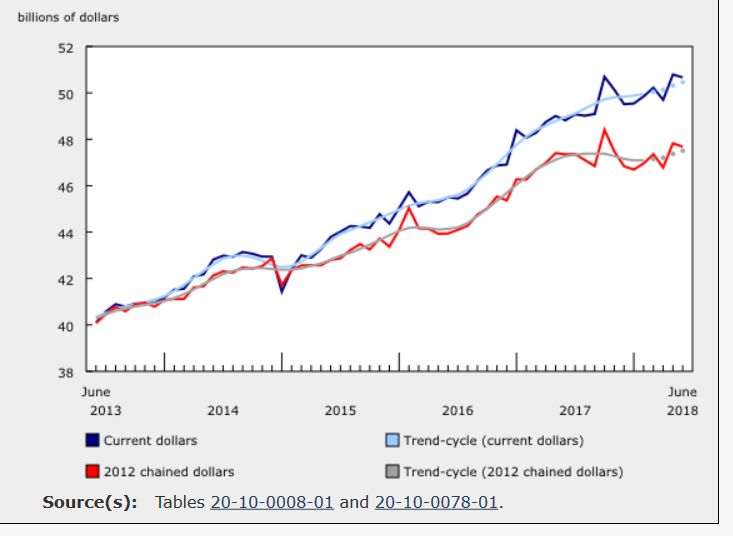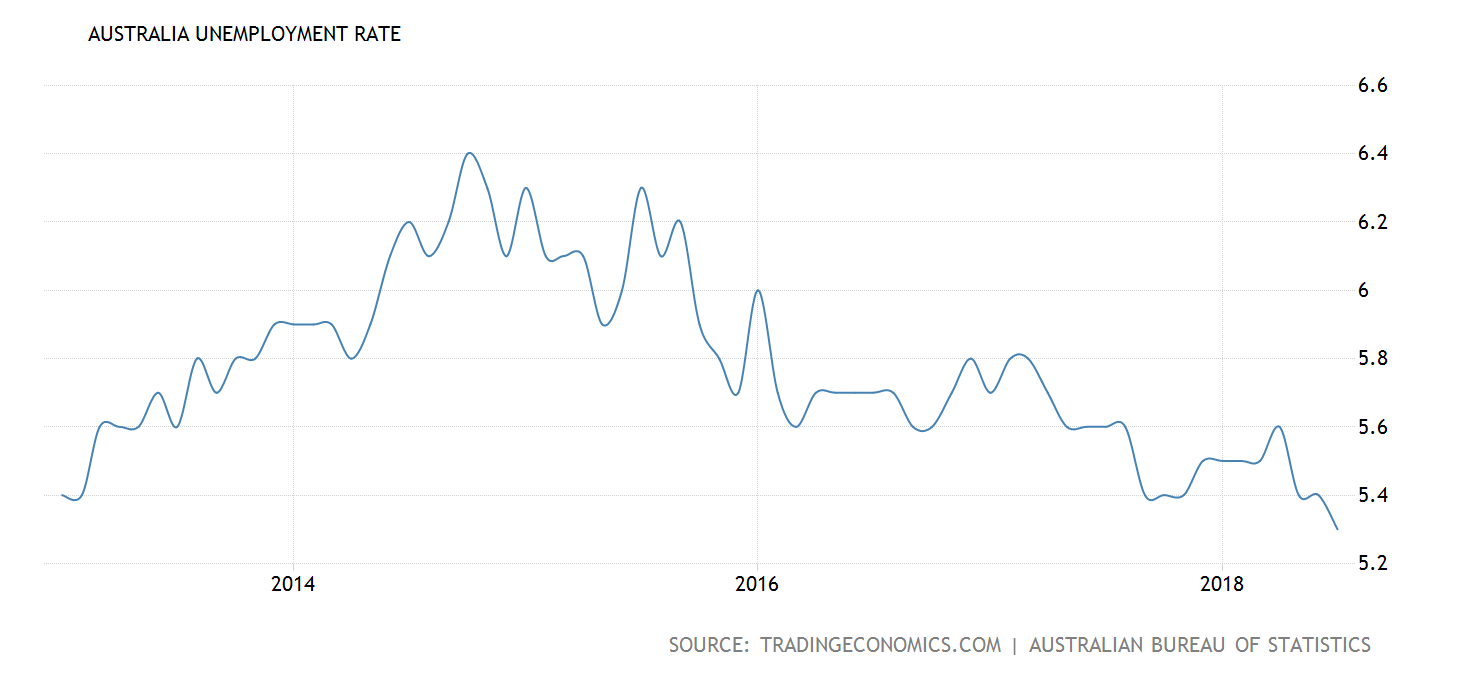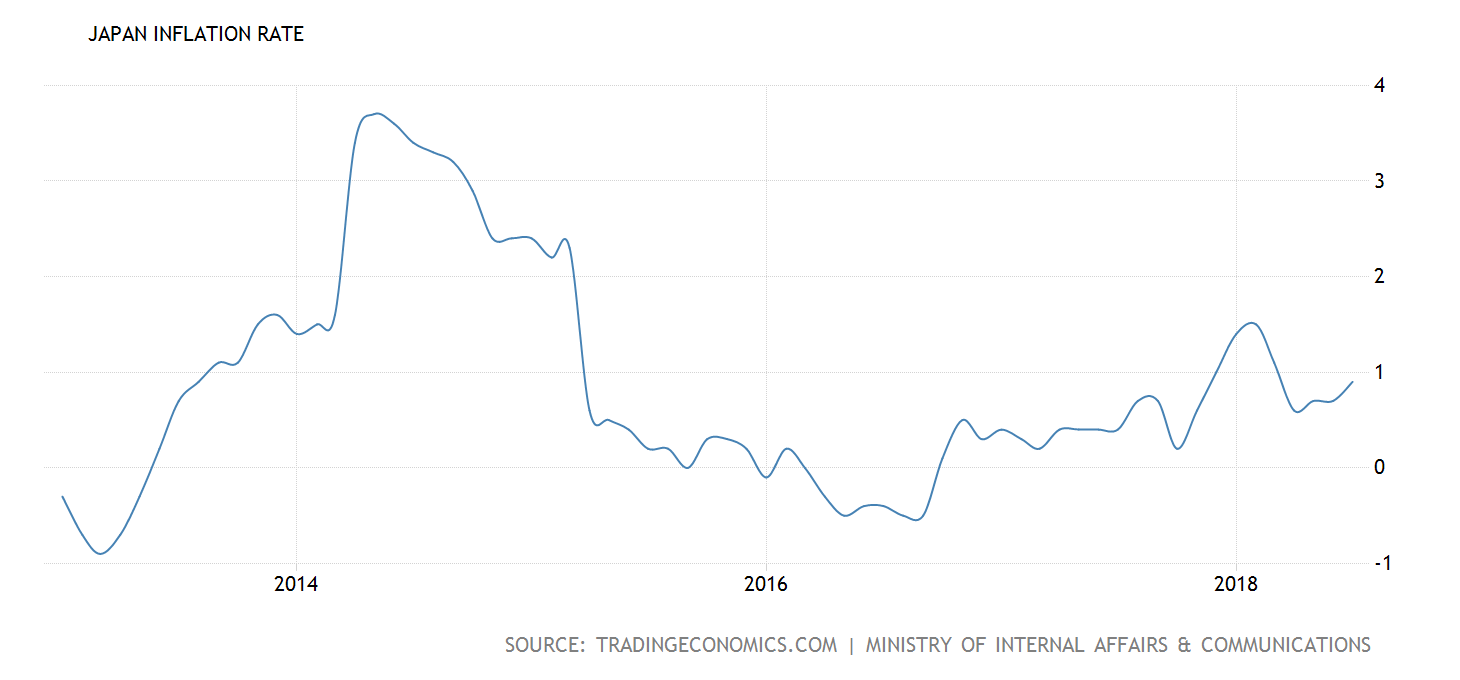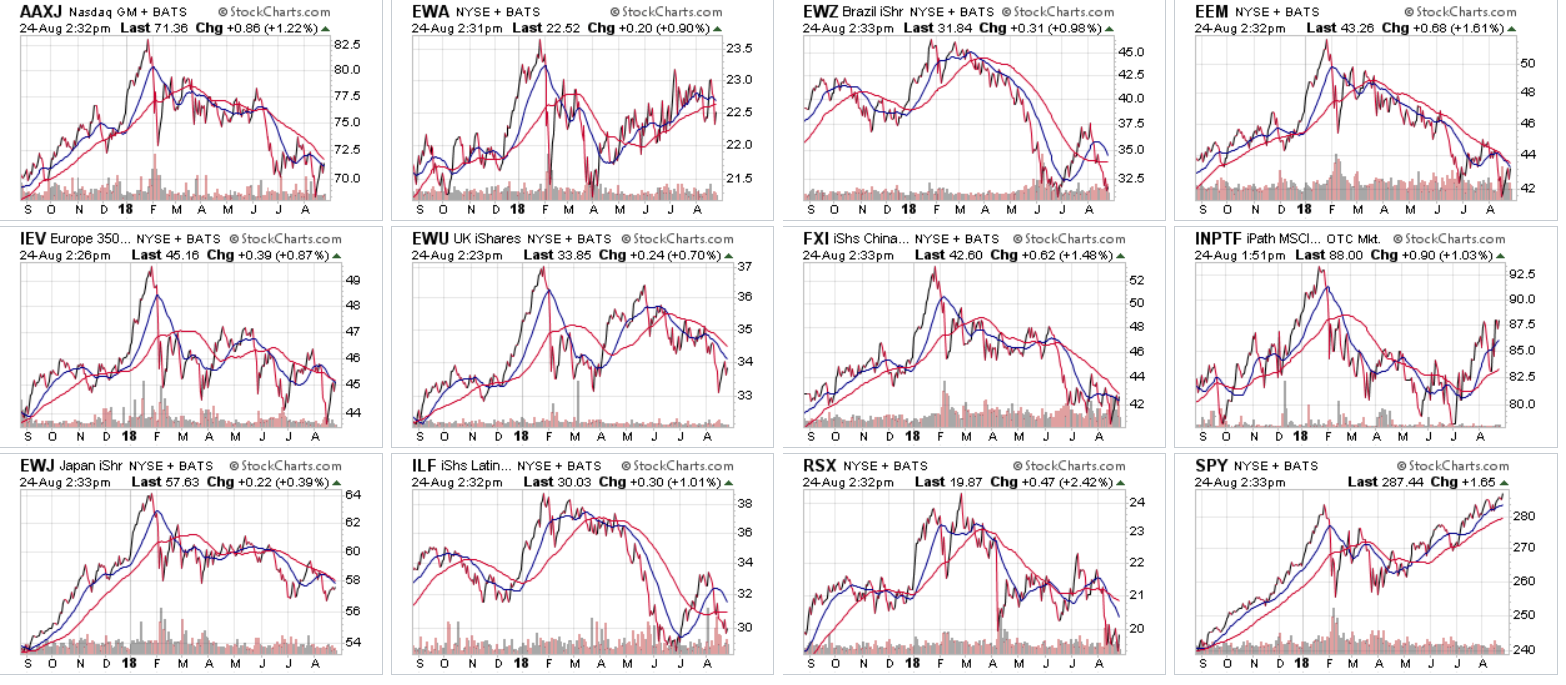Summary
- The general economic numbers are positive.
- There is growing concern about trade issues.
- Global ETFs are in poor shape.
In Canada, retail sales were down .2%, which followed a strong gain of 2.2% in the preceding month. Sales were down at auto dealerships, while activity increased at grocery stores and restaurants. On an inflation-adjusted basis, sales have been mostly flat for the last few years:
Remember that Canada experienced a modest economic contraction a few years ago which was caused by oil's price drop. While most of the Canadian economy weathered the slowdown, the oil regions in the Western part of the country contracted. The economy has emerged from this weakness over the last year or so.
The ECB released its latest meeting minutes, which generally showed a growing EU economy. All participants agreed that the first quarter strength was temporary; second-quarter growth would be more subdued. Domestic demand was the primary growth driver; exports contracted as a result of rising protectionism. Employment growth was solid. The ECB projected growth would continue in the intermediate term. This was confirmed by the latest Markit Economics EU survey, which showed marginal changes in the overall expansionary levels of the report. As for future policy, the ECB was very clear [emphasis added]:
Against this background, members unanimously agreed to maintain the current monetary policy stance and to reconfirm all elements of the Governing Council’s forward guidance. This involved reiterating that the Governing Council expected policy rates to remain at their present levels at least through the summer of 2019 and, in any case, for as long as necessary to ensure the continued sustained convergence of inflation to levels below, but close to, 2% over the medium term. It also meant reconfirming that the Governing Council would continue to make net purchases under its asset purchase programme (APP) at the present monthly pace of €30 billion until the end of September 2018 and that it anticipated that, after September 2018, subject to incoming data confirming its medium-term inflation outlook, the Governing Council would reduce the monthly pace of the net asset purchases to €15 billion until the end of December 2018 and then end net purchases.
The RBA also released the latest Meeting Minutes for the Reserve Bank of Australia - which, thanks to its natural resource abundance and close proximity to China, hasn't had a recession in 20+ years. Unemployment is currently 5.5%; the general consensus is that it will decline to 5% by 2020. Inflation is running a little over 2%. Strong employment is supporting some wage gains, although, like other developed economies, weak wage growth is the norm. Investment is positive and the terms of trade have been supported by strong income growth. Here's the key paragraph on future Australian rates [emphasis added]:
Based on the forecasts, members assessed that the current stance of monetary policy would continue to support economic growth and allow further progress to be made in reducing the unemployment rate and returning inflation towards the midpoint of the target. In these circumstances, members continued to agree that the next move in the cash rate would more likely be an increase than a decrease. However, since progress on unemployment and inflation was likely to be gradual, they also agreed there was no strong case for a near-term adjustment in monetary policy. Rather, members assessed that it would be appropriate to hold the cash rate steady and for the Bank to be a source of stability and confidence while this progress unfolds.
The main issue here is employment:
The Australian unemployment rate ticked higher at the end of 2015 and remained higher than other developed economies through 2016. This will keep the RBA on hold for the short and probably intermediate term.
Finally, we have Japan. Its Markit number increased .2 to 52.5. Exports were weak, indicating domestic demand accounted for all most of the increases. Survey respondents commented that trade issues were a concern. Despite having a growing economy and an incredibly low unemployment rate (which is currently below 3%) inflation is still low. The Y/Y rate is .9%. The good news is that it's ticking higher but is still a long way from the BOJs 2% target:
Turning to the major ETFs, here they are:
Notice the lack of any meaningful global rallies. With the exception of the SPYs (last row, far right), no other index is near a 52-week high. Brazil and the emerging market ETF (top row, last two on the right), China (second row, second from right), Latin America and Russia (bottom row, middle two) are all near 52-week lows. We can thank U.S. trade rhetoric. Australia (top row, second from left) is the only other ETF in a modest rally.
Disclosure:I/we have no positions in any stocks mentioned, and no plans to initiate any positions within the next 72 hours.
I wrote this article myself, and it expresses my own opinions. I am not receiving compensation for it (other than from Seeking Alpha). I have no business relationship with any company whose stock is mentioned in this article.




